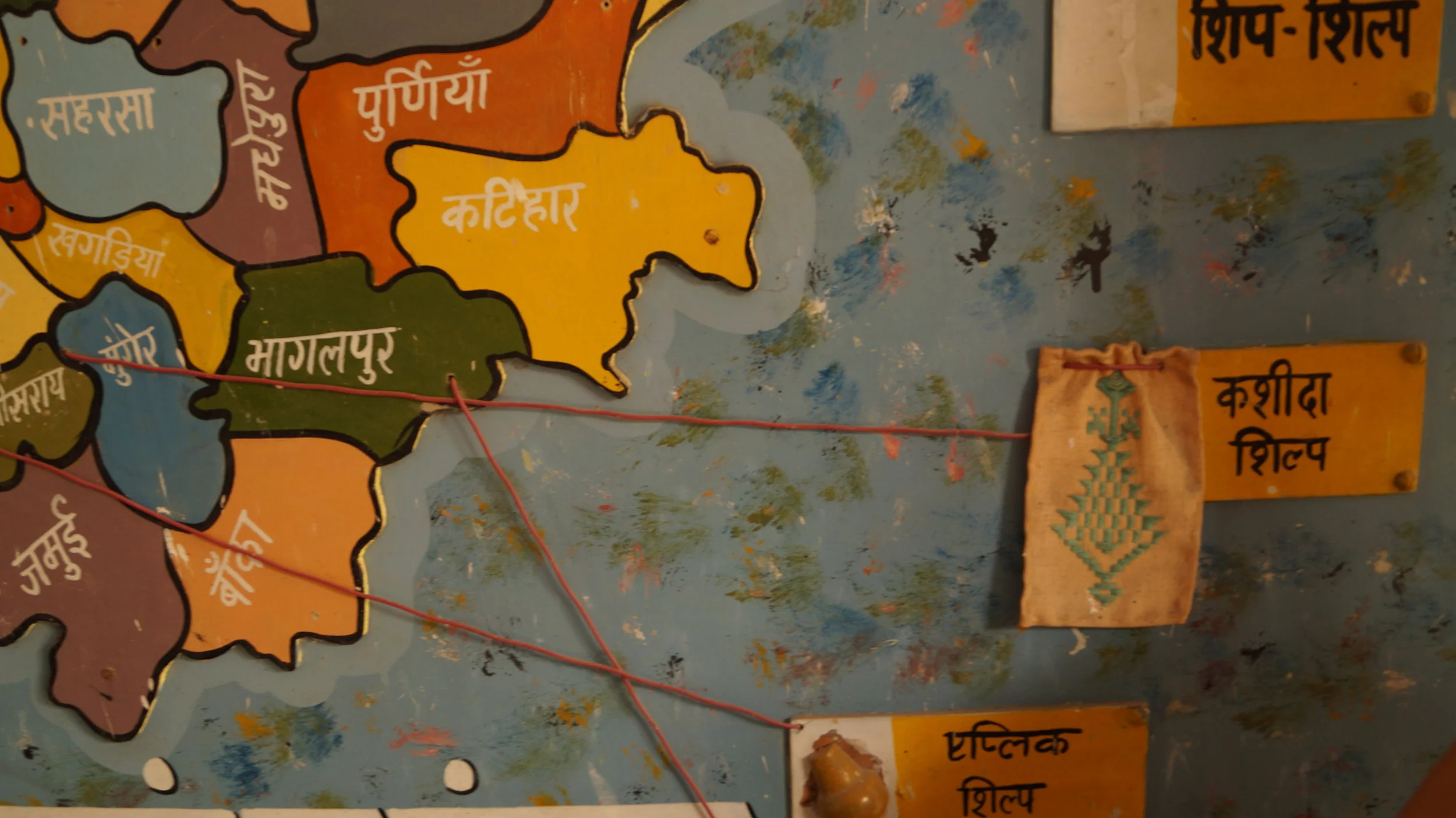Awalkhana Institute has initiated the Craft for Empowerment Initiative (CEI) in Bihar aiming to develop a vibrant textile heritage craft sector by converting the everyday heritage craft skills of the artisanal community into viable enterprise, thereby ensuring socio-economic inclusion of the rural and the marginalized society. As part of this project, we are aiming to identify group of women with skills in everyday textile heritage. In total, 10 women groups have been identified with the help of our field experts in three districts of Bihar namely Arrah, Patna and Samastipur mapping their skills, socio- economic conditions and intent to continue in everyday craft work.
Going forward, we would be working towards building their skills and capacities to cater to larger audience for supporting the economy of these artisans through new paradigms of tools like social entrepreneurship, design thinking, sustainable approaches, research and development, documentation and effective use of digital tools and technologies.
In Hassanpura, a small tehsil in Arrah district of Bihar, we identified a unique form of textile craft produced by women. The women in this region produce unique forms of quilts- utilizing threads from older sarees, bedsheets and other material to recreate a quill with patterns and motifs. This craft of making quilts requires an eye for detailed embroidery, strenuous skills and aesthetic sense, produced by most women in the village, particularly the Dalit community is an everyday activity.





